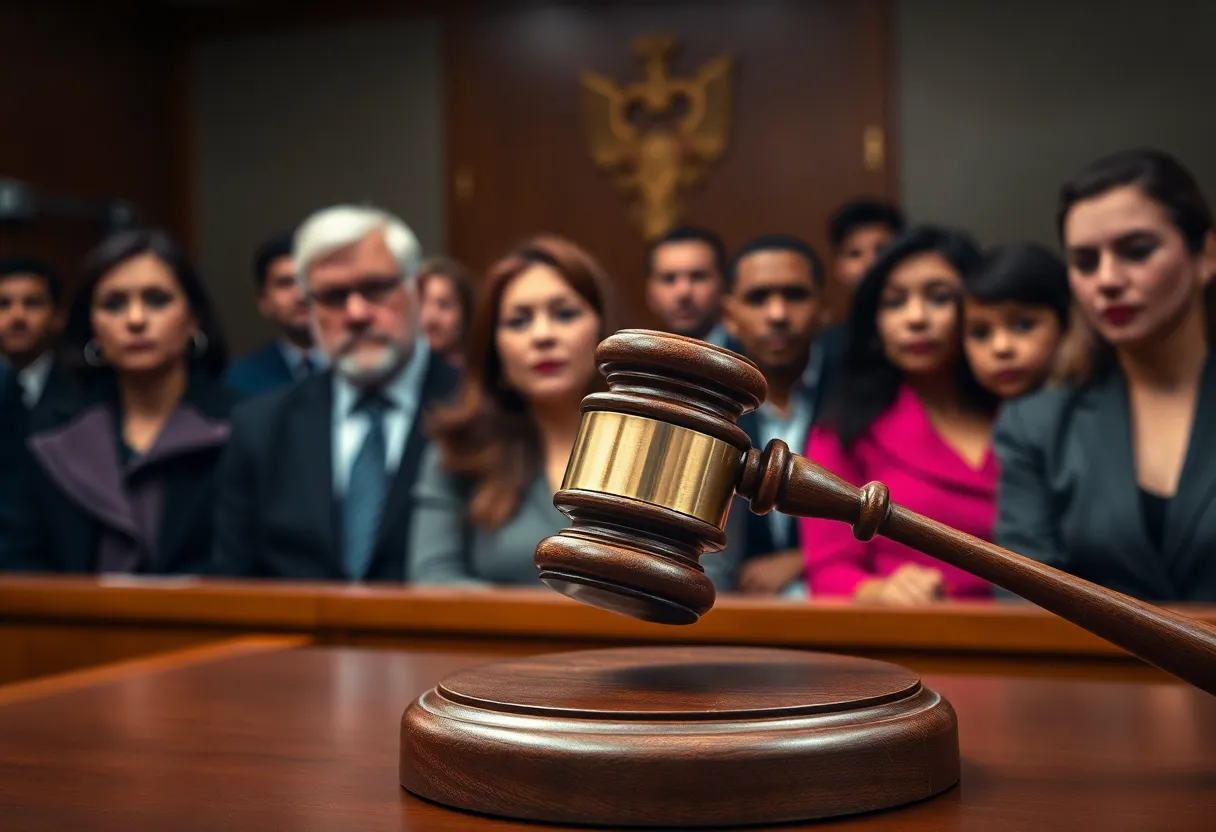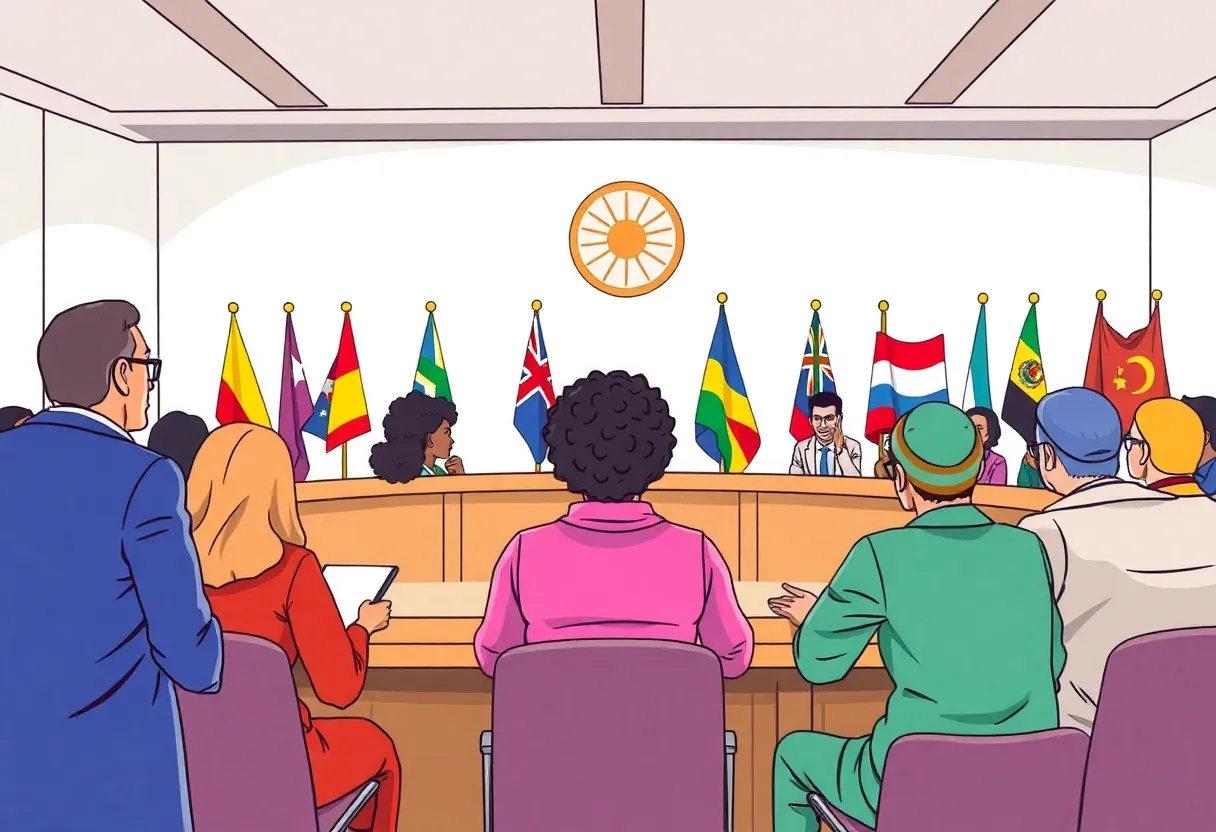News Summary
Kilmar Abrego Garcia, a Salvadoran national and legal U.S. resident since 2011, was recently deported under controversial circumstances. Despite having no criminal charges against him, his deportation has raised questions about legal protections. Accused of gang affiliation and despite a prior court order preventing deportation, Garcia now finds himself in a dangerous prison in El Salvador. His wife advocates for his return, highlighting the complexities surrounding immigration laws and individual rights.
Outrage Erupts Over Alleged Wrongful Deportation of Kilmar Abrego Garcia
Last month, **Kilmar Abrego Garcia**, a Salvadoran national, made headlines when he was forcibly deported to El Salvador, landing him in a notorious megaprison known as CECOT. This deportation has caused quite a stir, especially since Garcia was living in the U.S. as a protected legal resident since 2011.
The Controversial Background of Kilmar Abrego Garcia
Newly released documents suggest Garcia held a position within the **MS-13 gang**, specifically the rank of “Chequeo” and went by the street name “Chele.” U.S. Attorney General Pam Bondi backed claims made by President Trump, asserting Garcia’s gang affiliation was substantiated by additional evidence. Law enforcement reports from March 2019 indicated that Garcia was found mingling with confirmed MS-13 members in a parking lot.
According to these reports, a confidential informant had tipped off the police, stating that Garcia was an active MS-13 member associated with **Western cliques**. The clothing Garcia was reported to wear—most notably a Chicago Bulls hat alongside a hoodie decorated with images of rolled-up money—raised red flags as these items symbolize affiliation with gang culture rather than mere sports fandom.
Legal Protections and Tragic Ironies
Despite these serious accusations, it’s crucial to note that Garcia had not faced any criminal charges. His deportation was executed under the **18th-century Alien Enemies Act**, raising eyebrows about its validity. Interestingly, a court order from 2019 had already blocked his deportation due to the potential threat of retaliation from gangs like Barrio 18 in El Salvador. Yet, his status as a documented resident didn’t seem to protect him this time.
The Role of Family in the Saga
Garcia’s complicated domestic life adds another layer to this story. He has a history of alleged domestic abuse against his wife, **Jennifer Vasquez Sura**, who is a U.S. citizen. It’s reported that she had previously sought a protective order against him in 2021, but, in a surprising turn of events, they later reconciled, and she supported his release from custody. Vasquez Sura continues to advocate for her husband, describing him as a **loving partner and devoted father**.
Legal Battles and Future Consequences
Garcia’s path to deportation included legal twists that many would find puzzling. He was arrested in March 2019 while seeking work alongside other noncitizens. Local authorities then transferred him to **Immigration and Customs Enforcement (ICE)**, and an immigration judge granted him credibility and protection against deportation, stating at the time that ICE did not appeal their ruling. Fast forward nearly six years later, and he found himself again in ICE custody while in a car with his autistic son.
The aggressive stance taken by the administration has led to a complex legal fight. A federal judge ordered Garcia’s return to the U.S., but the Trump administration quickly filed for a stay on this order, citing national security concerns with Garcia’s alleged gang ties. Notably, Garcia’s attorneys emphasized the fact that he had committed no crimes since the 2019 ruling.
Garcia’s Current Status and Implications
The Supreme Court has since issued an administrative stay regarding the judge’s order by referencing the **Alien Enemies Act** to justify his deportation. Officials characterized Garcia’s case as a **major victory in the ongoing battle against organized crime and terrorism**. As this saga unfolds, many are left questioning the implications of such policies and the legal protections for individuals like Garcia navigating the immigration system.
The ongoing discourse surrounding Garcia’s deportation echoes the broader tension between enforcing immigration laws and ensuring justice and protection for individuals living in the United States. It leaves many contemplating what comes next for them, their families, and their communities.
Deeper Dive: News & Info About This Topic
- New York Post: Kilmar Abrego Garcia’s Deportation
- NBC News: Chicago Bulls Hat Incident
- Chicago Tribune: Trump and ICE Detainments
- Fox59: Who is Kilmar Abrego Garcia?
- Wikipedia: MS-13

Author: STAFF HERE PETERSBURG WRITER
The ST PETERSBURG STAFF WRITER represents the experienced team at HEREStPetersburg.com, your go-to source for actionable local news and information in St Petersburg, Pinellas County, and beyond. Specializing in "news you can use," we cover essential topics like product reviews for personal and business needs, local business directories, politics, real estate trends, neighborhood insights, and state news affecting the area—with deep expertise drawn from years of dedicated reporting and strong community input, including local press releases and business updates. We deliver top reporting on high-value events such as Grand Prix of St. Petersburg, Localtopia, and SHINE Mural Festival. Our coverage extends to key organizations like the St. Petersburg Area Chamber of Commerce and St. Pete Downtown Partnership, plus leading businesses in finance, manufacturing, and healthcare that power the local economy such as Raymond James Financial, Jabil, and Bayfront Health St. Petersburg. As part of the broader HERE network, including HEREJacksonville.com, HEREOrlando.com, HERETallahassee.com, and HERETampa.com, we provide comprehensive, credible insights into Florida's dynamic landscape.




